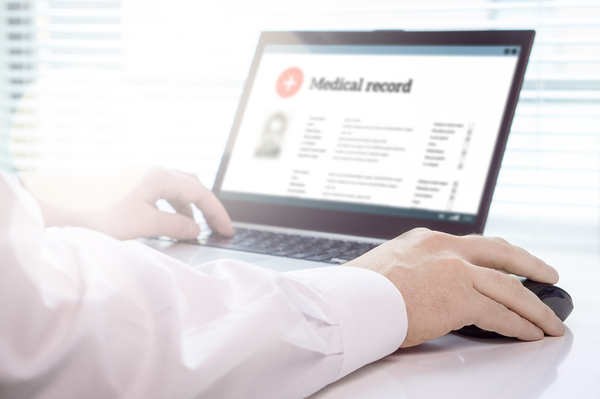Tech giant Apple announced a partnership with healthcare systems early in 2018. The first step, according to Business Insider, is a beta version of Apple’s Health app, to be piloted with 12 hospitals and clinics. Does the partnership have digital disruption potential?
It may have indeed digital disruption potential. But it also may not. It depends on what happens in future technology news.
Digital Disruption by Shifting Records to Patients?
The partnership signed up some very prestigious names in healthcare, including the University of Pennsylvania, Johns Hopkins, and Cedars-Sinai. Participating organizations will be able to make patients’ records and notifications available to those patients via their iPhones.
Patients will be able to receive notifications regarding necessary services, like immunizations and medications, as well as information, such as their vitals and laboratory results.
Apple anticipates the app being free within a few months.
While the shift to patient accessibility is part of the disruption, many patients currently have at least some access to their records digitally, via computer. The disruption here is a wider set of records, combined with prompts meant to optimize care.
Business Insider observes that Apple’s apps could eventually add the ability to add the data that consumers now have in wearables, on exercise, sleep, daily heart rates measurements, for example, and more. If this does become available, it has implications for the optimized management of chronic illness and preventive medicine.

The partnership will allow patients access to their records via their iPhones.
Solving an Interface Challenge
But the larger disruption might be how patient records are handled in the healthcare industry as a business strategy. While an increasing number of health records have been digitized over the past decade, it is far from clear whether the records can be shared among health systems.
Historically, the healthcare sector has not been a leader in electronic health records (EHR), for multiple reasons. Many healthcare systems and hospitals think of their patient records as proprietary, for example, and do not look favorably upon sharing them.
Patient records may use different information technology (IT) systems in different healthcare systems, and one system may not be usable or accessible by another.
It is not clear whether patient records released to another system will be complete.
There are also privacy concerns regarding electronic data. Some of these are subsets of larger concerns about electronic data and potential identity or other cybertheft of it.
It is also cumbersome and expensive to store medical data, even in electronic form. As a result, making it the patients’ responsibility seems like the best idea.
A recent Harvard Business Review, for example, extolled the liberatory potential of putting records in patients’ hands. Giving them access to their records allows them to participate in the management of their health care.
But the authors also admit that there are huge challenges related to such things as the security of records, making sure patients are sufficiently informed to manage their healthcare well, and making the markets impermeable to the unscrupulous who might prey on patients’ health care concerns.
The HBR also points out that a successful pilot program may pave the way for Apple to develop apps that let patients manage their healthcare in real time, which could be highly beneficial.
So will the Apple partnership disrupt health care? It may. But it may also eventually emphasize the challenges of sharing patient data and the limitations of self-management.
